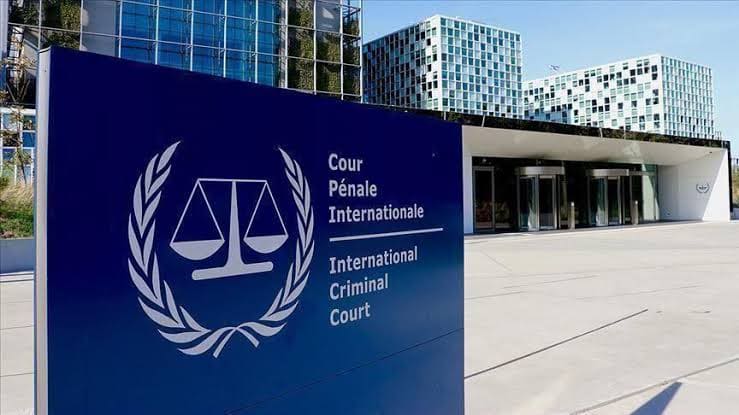المواجهة الجنائية لتمويل الإرهاب في القانون الدولي الجنائي ( دراسة وفقًا لأحكام الاتفاقية الدولية لقمع تمويل الإرهاب)
Criminal confrontation of terrorist financing in international criminal law (A study in accordance with the provisions of the Convention for the Suppression of the Financing of Terrorism)

اعداد : د.جمعة فرج شرف الدين، كلية الحقوق – جامعة الإسكندرية، مصر
المركز الديمقراطي العربي : –
- مجلة قضايا التطرف والجماعات المسلحة : العدد الثاني عشر آب – أغسطس 2023 , مجلد4 , دورية علمية محكمة تصدر عن #المركز_الديمقراطي_العربي “ألمانيا –برلين” .
-
تعنى بنشر دراسات وأبحاث حول قضايا التطرف والإيديولوجيات المتطرفة والجماعات المسلحة في مختلف مناطق العالم. تهتم المجلة بتحليل وتفسير تنامي التطرف والجماعات المتشددة – بغض النظر عن خلفياتها – التي تعتمد على العنف المسلح كأسلوب في نشاطها وتحقيق غاياتها. وتهتم المجلة كذلك بالتيارات السياسية المتطرفة التي تشارك في العملية السياسية ولا تستخدم العنف المسلح، لكنها تتبنى خطابا شعبويا أو إقصائيا أو عنصريا بهدف الوصول إلى السلطة.
للأطلاع على البحث “pdf” من خلال الرابط المرفق :-
ملخص:
يمثل تمويل الأنشطة الإرهابية خطورة كبيرة على المجتمع الدولي، باعتباره الآلة التي تنتج العمليات الإرهابية؛ لأن قوة الأنشطة الإرهابية ترجع إلى القدرة المالية للإرهابيين. فالتخطيط والتنفيذ للعمليات الإرهابية، يتطلب بالضرورة الاعتماد على موارد مالية لإتمام هذه العمليات الإرهابية. ويعد تمويل الإرهاب بعد تطور الأنشطة الإرهابية صالحًا للاستخدام كبديل للحروب التقليدية من قبل بعض الدول. ولذا أبرمت الاتفاقية الدولية لقمع تمويل الإرهاب عام 1999م حيث كان التجريم والعقاب مقتصرا على ارتكاب الأنشطة الإرهابية من قبل المجتمع الدولي والتشريع الداخلي. وظهر مصطلح تمويل الإرهاب حديثا ضمن مصطلحات القانون الدولي الجنائي على المستويين الوطني والدولي .
وتعد الاتفاقية من أهم اتفاقيات مكافحة جرائم الإرهاب الدولي، وأكثرها تطورًا؛ لما تنطوي عليه من أحكام مستحدثة للمواجهة القانونية لجريمة الإرهاب الدولي. وتهدف الاتفاقية بصفة أساسية إلى ضمان وضع إطار قانوني شامل يغطي إشكالية منع تمويل الإرهابيين والمنظمات الإرهابية. وتقضي الاتفاقية، بأن تتخذ الدول الأطراف خطوات لمنع ومكافحة تمويل الإرهابيين، بشكل مباشر أو غير مباشر. وتُلزم الاتفاقية الدول بتحميل من يمولون الإرهاب مسؤولية جنائية، ومدنية، وإدارية. وفي المقابل تقوم بعض الدول باتخاذ تدابير عسكرية ضد دول أخرى أو ضد المقاومة المسلحة بدعوى مكافحة تمويل الأنشطة الإرهابية و الإرهاب الدولي، استنادًا إلى نظرية الدفاع الشرعي الدولي لإضفاء صفة المشروعية الدولية عليها. ونتساءل عن مدى مشروعية ذلك.
Abstract
The financing of terrorist activities poses a great danger to the international community as the machine that produces terrorist operations; Because the strength of terrorist activities is due to the financial capacity of terrorists. The planning and execution of terrorist operations necessarily require the use of financial resources to carry out such terrorist operations. The financing of terrorism after the development of terrorist activities is valid as an alternative to conventional wars by some States. Thus, the International Convention for the Suppression of the Financing of Terrorism was concluded in 1999, whereby criminalization and punishment were limited to the commission of terrorist activities by the international community and domestic legislation. The term financing of terrorism has recently appeared in terms of international criminal law at the national and international levels.
The Convention is one of the most important and sophisticated conventions against crimes of international terrorism; It contains provisions for the legal response to the crime of international terrorism. The Convention’s main objective is to ensure a comprehensive legal framework covering the problem of preventing the financing of terrorists and terrorist organizations. Under the Convention, state parties are required to take steps to prevent and combat the financing of terrorists, directly or indirectly. The convention obliges states to hold those who finance terrorism criminally, civilly, and administratively liable. In contrast, some States take military measures against other States or against armed resistance under the pretext of combating the financing of terrorist activities or international terrorism, based on the theory of international legitimate defense to give them international legitimacy. We wonder how legitimate that is.




